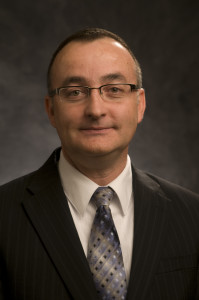Taking Control of Anxiety
May 26, 2016 Tom Kimball, Ph.D.
As published in Breaking the Cycles by Tom Kimball, Ph.D.
Taking Control of My Anxiety by Thomas G. Kimball, Ph.D., LMFT

Dr. Thomas G. Kimball, Ph.D., LMFT, shares his success with taking control of anxiety.
Four years ago, almost to the month, I had my first panic attack. I had been under a lot of stress at work and was extra anxious over a variety of other life stressors. In the late afternoon, I took my son, TK, to his soccer practice and sat on the side of the field in the shade. Then, bam, it hit me. My heart started racing and I began to sweat. Worse than the physical symptoms was the overwhelming feeling of terror that convinced me the end of the world was happening now and I was at its epicenter. That terror smashed into me like a 1500 foot Tsunami wave seemingly pushing me to the brink of annihilation. I truly thought I might die right there on the side of the soccer field. In panic (pun intended), I called my safety net and spouse Melissa:
Melissa: Hey, Babe.
Me: I think I might be dying.
Melissa: Oh my gosh, what’s wrong, what happened?
Me: I don’t know. I . . . . . . . . . . . . . .
Melissa: Where are you? I’m coming to get you.
Me: My heart is racing, I’m sweating bullets. I am so afraid.
Melissa: Should I call 911? Do you need to go to the ER?
Me: I don’t know what’s happening to me.
Melissa: I think you might be having a panic attack.
She was right of course. She knew the stress I had been under and the toll it was taking on me. She helped me breathe deeply and reassured me it would pass and the world wasn’t ending. Somehow hearing her voice and her staying with me on the phone was incredibly helpful. She supported me until my heart stopped racing, I stopped sweating and the Tsunami magically disappeared. What followed from there was me learning how to deal with my anxiety as the special friend I never wanted in my life. Me, known for being Mr. Non-Anxious was now Mr. Anxious. I had several questions. What am I going to do? What are other people going think? And most importantly, how do I stop it?
The bad news is that I am not alone. According to the National Institute of Mental Health, Anxiety Disorders affect approximately 40 million people in the United States—18.1% percent of adults 18-54 (NIMH). There are some researchers who put this number much higher at 30% because so many people don’t seek or can’t seek help for their anxiety or are misdiagnosed. These numbers put anxiety at the top of the list of mental health issues in the United States. http://www.anxietycentre.com/anxiety-statistics-information.shtml
Generalized anxiety is defined as excessive worry and/or apprehension that occurs more days than not over a six months period. This apprehension and worry could be about certain things happening in your life (e.g., work, family, school), but there are times when the source(s) of anxiety remains elusive in nature. What is maddening is that anxiety is difficult to control and is often accompanied by other symptoms such as restlessness or edginess, fatigue, difficulty concentrating, irritability, muscle tension and sleep disturbance. For many these symptoms often create distress and impairment in all areas of a their life (2013: Diagnostic and statistical manual of mental disorders (5th ed.) Arlington, VA: AP Publishing).
The good news is anxiety is highly treatable when people reach out for help. Thinking of my own experience and initial questions may help guide you if you are suffering from anxiety.
What am I going do?
Reach out for help. Please. I resisted reaching out for help because I am stubborn and don’t like to be needy. Sound familiar? When I reached out to get help from my doctor and others I began to find relief. When I began to take anti-anxiety medication, to exercise, to eat right and to meditate, my symptoms all but disappeared.
What are other people going to think?
Now that I am less anxious, I don’t care. It’s amazing how reaching out for help has changed my perspective. In addition, by walking through and dealing with my own anxiety, I have become a more empathic and compassionate person. I am a better professor, therapist, father, spouse and friend now that I understand what many people around me carry every day. I have great respect for those who suffer from anxiety and have the courage to reach out for help.
How do I stop anxiety?
After much work and effort, changing my diet, exercising and meditating regularly I am currently medication free and doing well. I have accepted that given my experiences I will most likely never be Mr. Non-Anxious man again. But, given my growth and what I have learned from my friend anxiety, I don’t even want to. I like who I am, anxiety and all.
In summary, reach out for help, don’t worry about what people think because you are not alone. Dealing with difficult things like anxiety has the potential to make us better.








